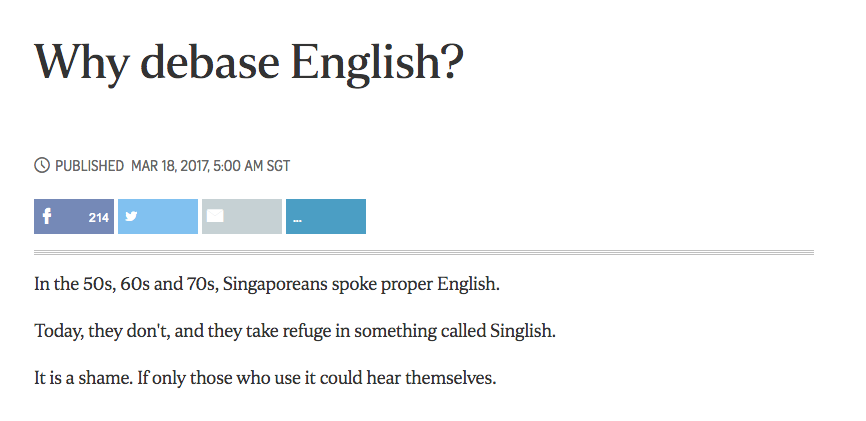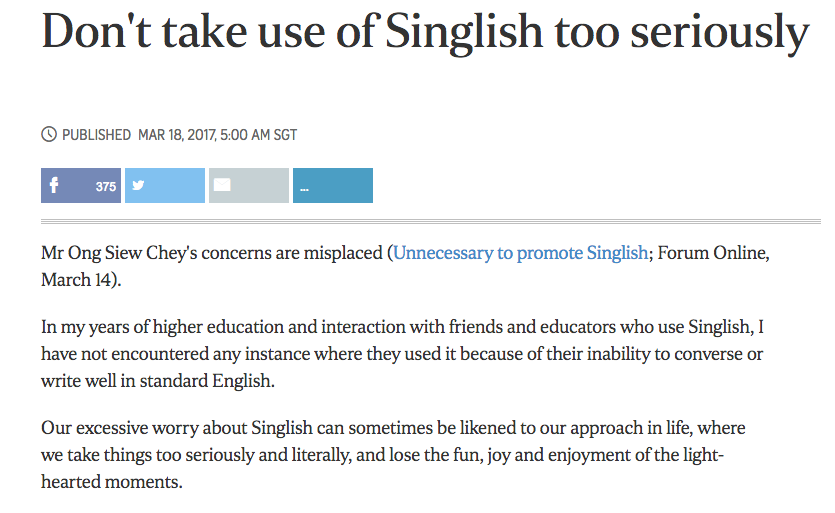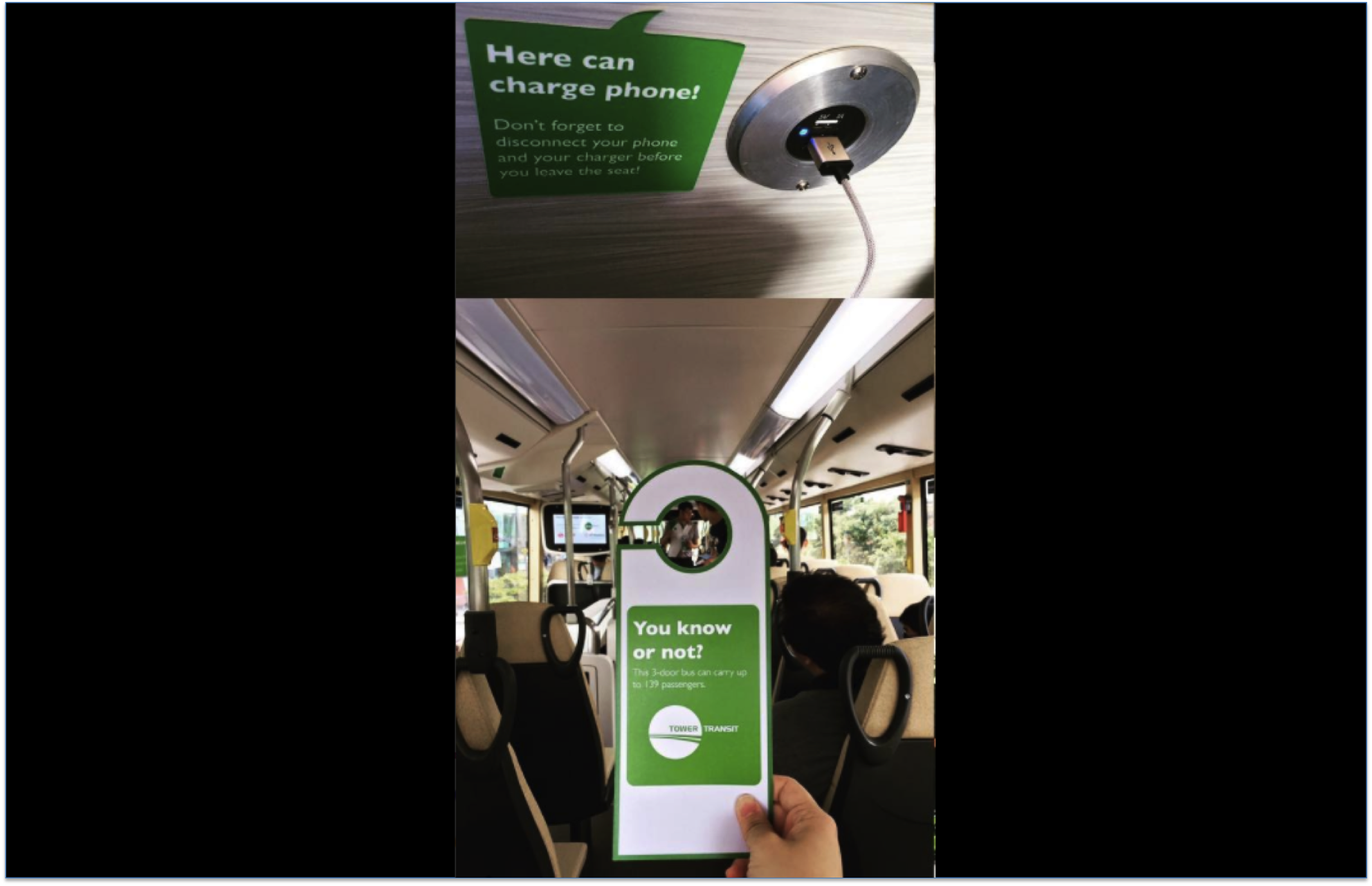The debate over Singlish and whether it should be legitimised — used in public signs on Tower Transit buses, for instance — has raged on over the weekend, with more people writing into forums to deplore its use:
 Screenshot from ST forum letter. Click to go to page
Screenshot from ST forum letter. Click to go to page
As well as others who wrote in to defend it:
 Screenshot from ST forum letter. Click to go to page
Screenshot from ST forum letter. Click to go to page
Wading into it over the weekend was Singaporean poet and playwright Alfian Sa'at, who shared his take on the matter in a Facebook post on Saturday afternoon.
Here are two pretty valid points he raised in an account he shared from his experience running workshops with secondary school students:
1. While people who say it's fine to legitimise Singlish are often deemed elitist, it's actually elitist to think that isn't a good idea.
Alfian pointed out that last year, PM Lee Hsien Loong's press secretary Chang Li Lin wrote in a letter to the New York Times:
"Not everyone has a Ph.D. in English Literature...who can code-switch effortlessly between Singlish and standard English."
To him, on the contrary, it is actually elitist to think one needs to be elaborately-educated in order to be able to code-switch between standard English and Singlish — especially evidenced by his experience with the students.
"The kids I've encountered seem to be aware that it's not a matter of good or bad English, but of different registers, of formality and informality, respect and rapport. That you can be stigmatised for using Singlish--for being uncouth--but you can also be stigmatised for your standard English--for putting on unnecessary airs."
2. We all have something Alfian calls "sociolinguistic awareness" — an innate understanding of our environment and the standards of English that are required.
Alfian shared in his example that when he told a group of students he was doing a workshop with to write dialogue for the role of a teacher, mother, and best friend, they invariably used standard English for the first, but delved into different forms of Singlish for the other two.
Hence the term "sociolinguistic awareness" — a kind of intuitive sensitivity towards the context or situation, and the kind of speech it requires.
It's an awareness we possess, beyond any education system or theoretical perimeters.
"The point is that when you see Singlish used on a sign on a bus, you'll find it funny because you *know* it's doing something transgressive. It's suddenly popped up in an unexpected place. You're amused, and you pay attention to what it says."
One could even say, in full acknowledgement of the irony, that some of us take too much pride in possessing the aforementioned awareness, seeing the fuss made over the Singlish signs.
But using Singlish (inappropriately) appears to be the symptom of any failure in our grasp of standard English, rather than the cause of it.
The case for Singlish
On this point, we should also note that there is a distinct difference between bad English and Singlish — and that there is also such a thing as bad Singlish, because Singlish is in itself a unique language with its own syntax and grammatical rules.
Proper Singlish, we would argue, is rooted in our sub-culture as vernacular. Denying it, as cliche as it might sound, is in a sense denying a part of the Singaporean identity.
Of course, there are circumstances under which Singlish would ring jarring and inappropriate. But the public bus — a common mode of transport for the multitude — is perhaps not one of them.
You say leh?
You can read Alfian's entire post here:
Related articles:
Singlish is beautiful, and Singaporeans should be mega-proud of it lor. Really what.
Singlish just happens to be a living language that is more alive than standard English
7 Singlish exclamations in response to the current debate on Singlish
PM Lee’s press secretary rebuts S’porean literary critic’s New York Times article on Singlish
Top photos from Instagram user @idalee812
If you like what you read, follow us on Facebook and Twitter to get the latest updates.
